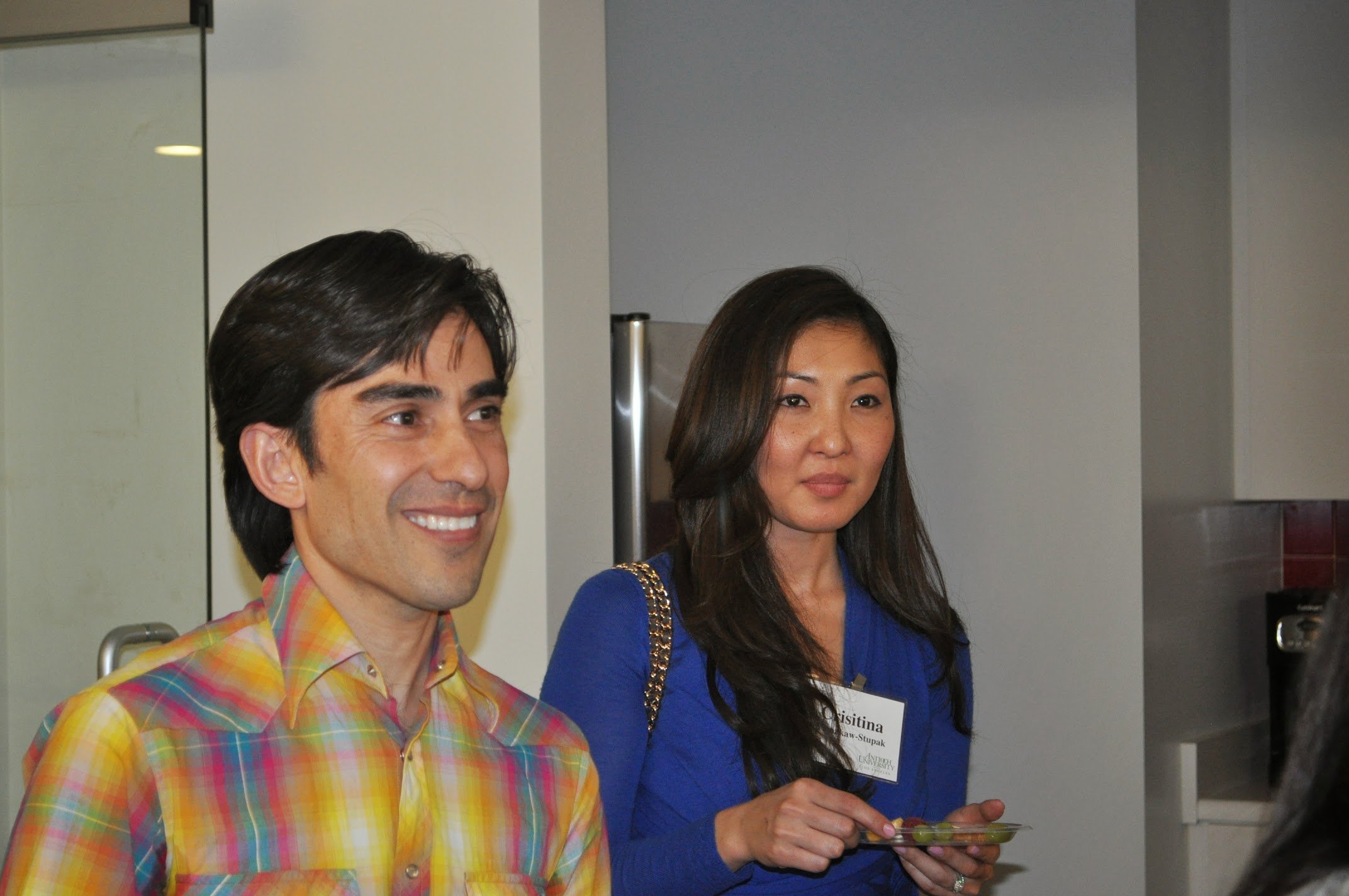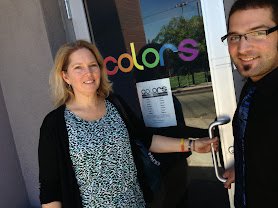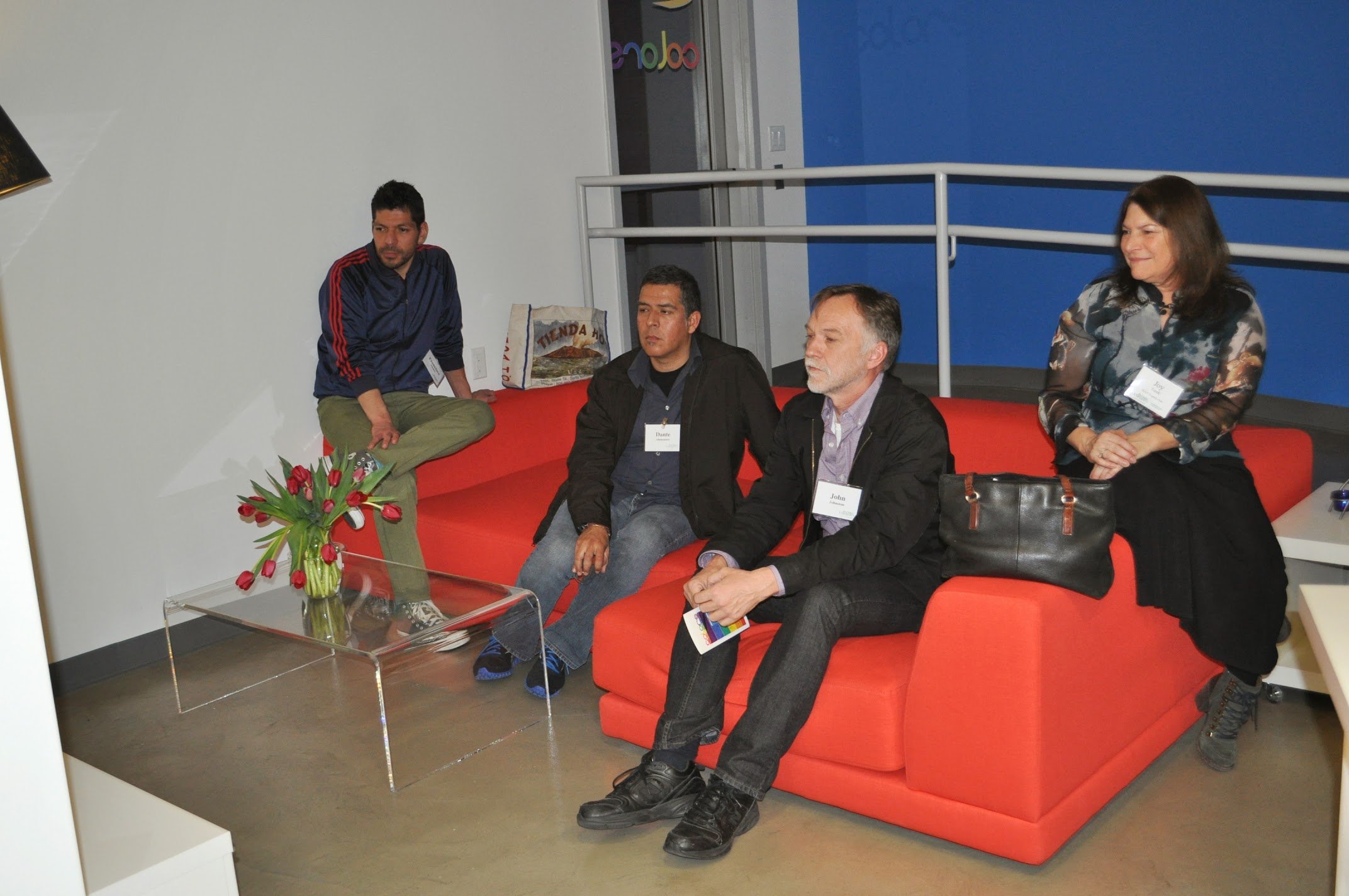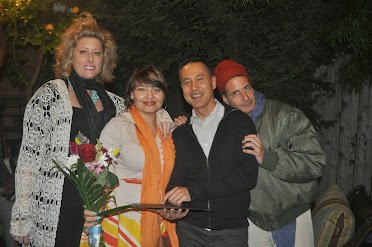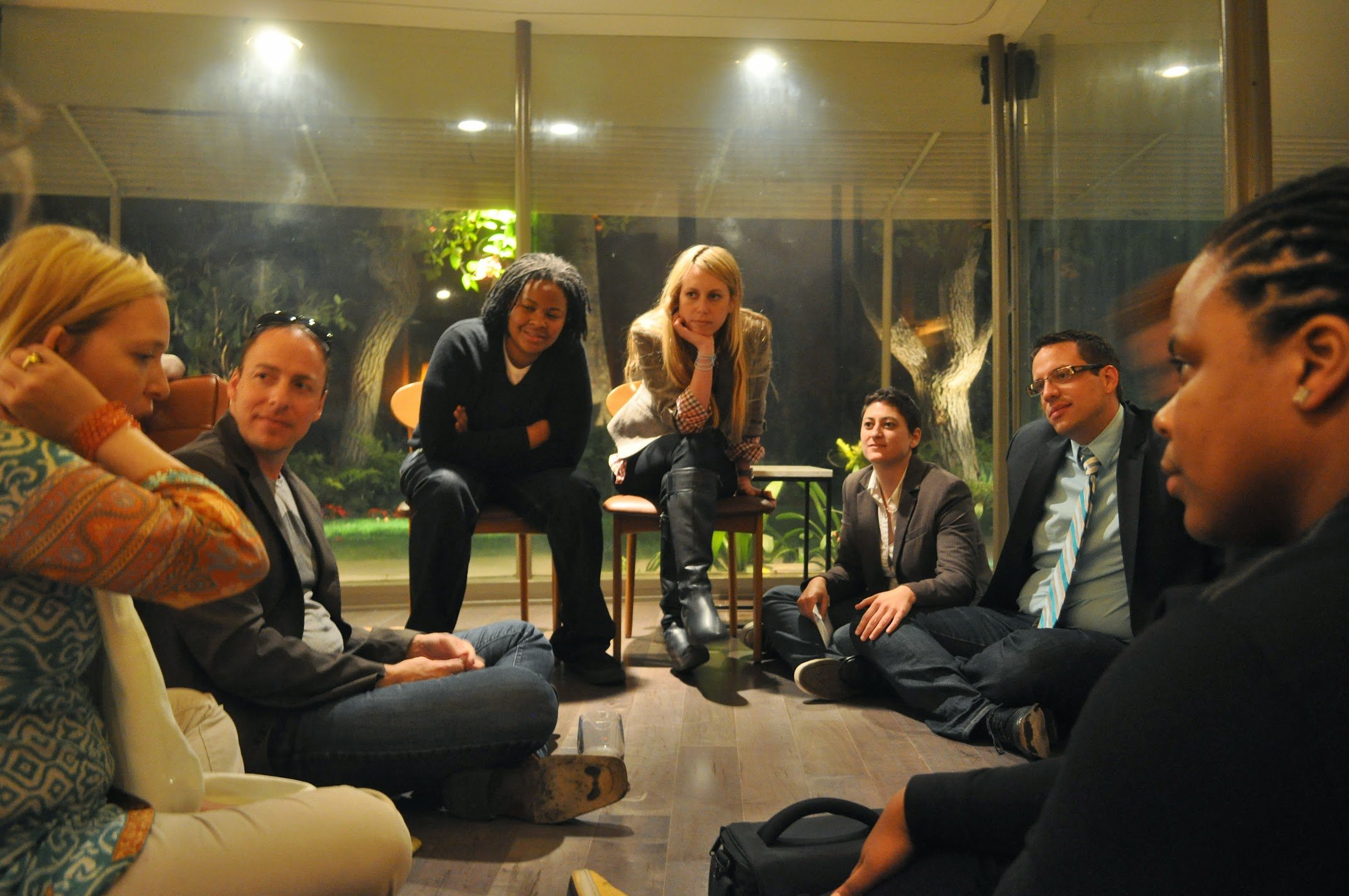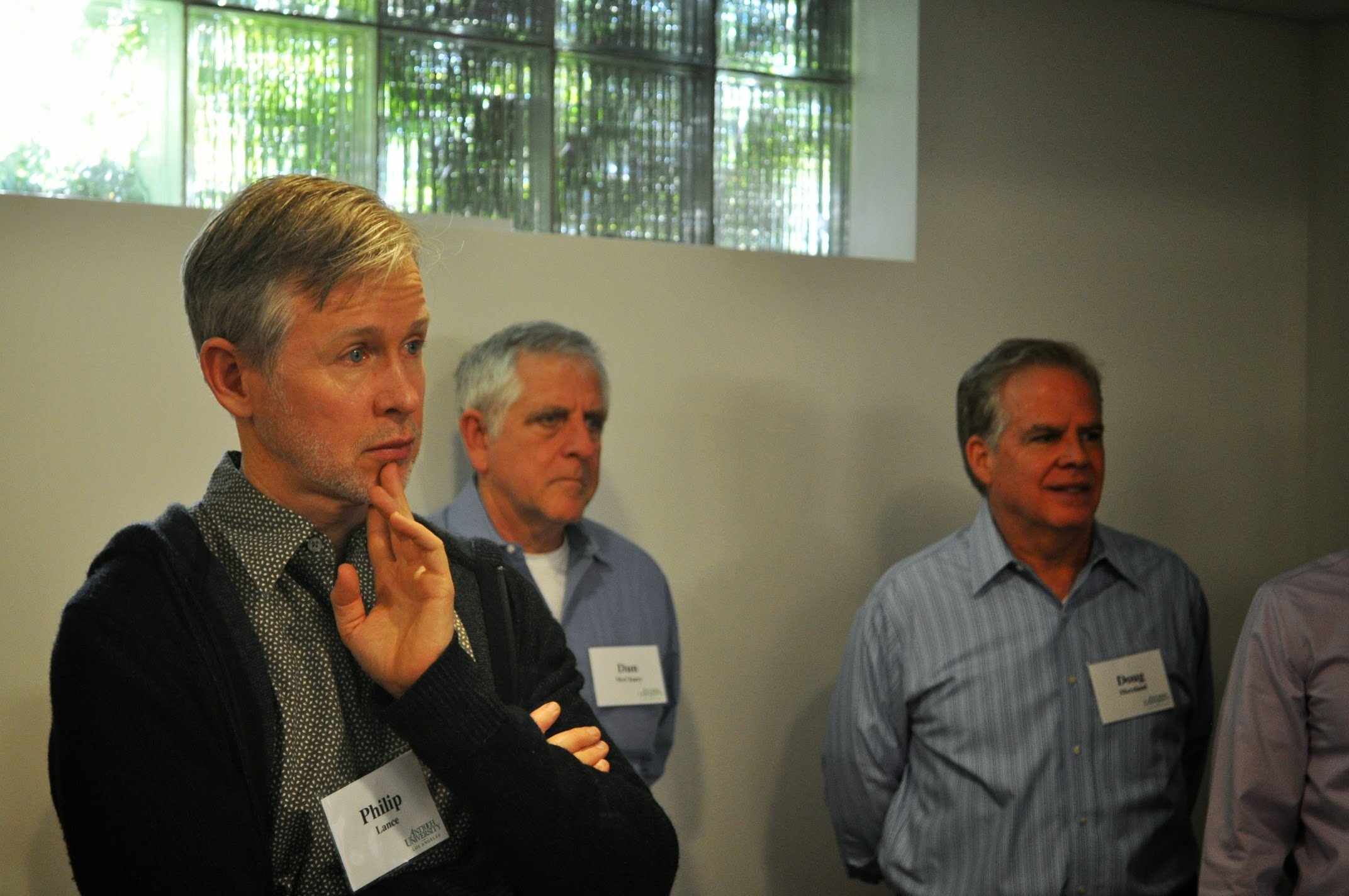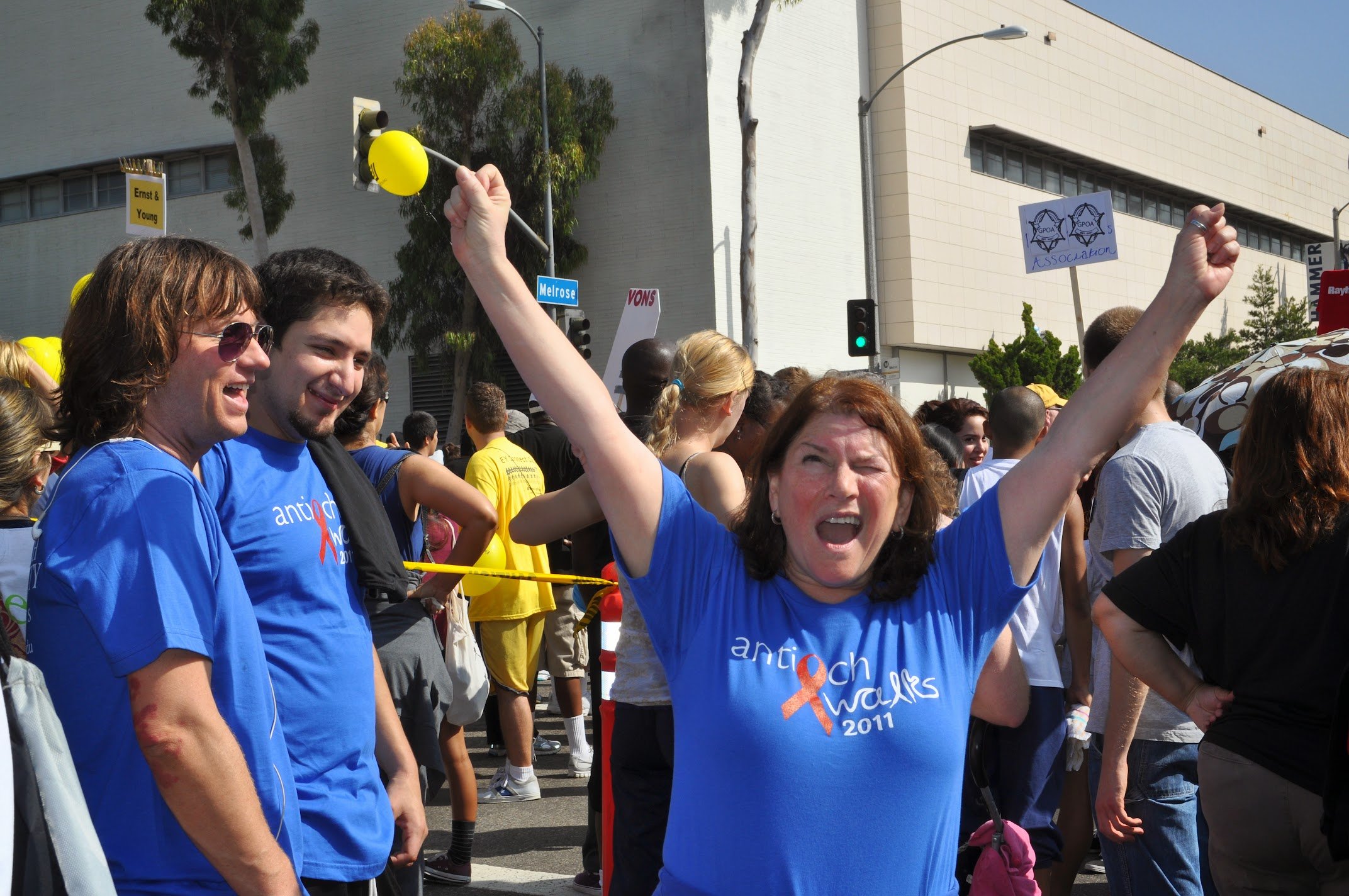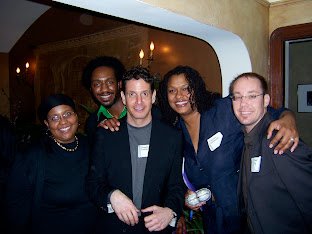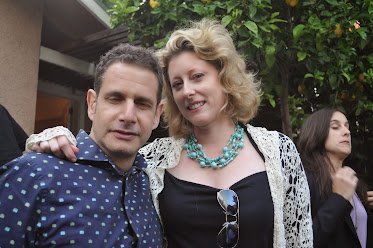On Queer Retirement and Queer Engagement
In December 2022, I attended my final faculty meeting with Antioch University’s Master of Arts Program in Clinical Psychology. I have officially retired! After seventeen years as “Core Faculty,” it’s quite a momentous occasion.
The process was appropriately poignant. When I stepped down as the director and founder of the LGBT Specialization in 2016, I was given a major send-off. Over the last three years, I have eased into this transition¾officially called, “phased retirement”¾ taking ample time to reflect on my contributions to the program and to envision my life beyond it.
The celebration will continue, however, into the spring. With Dean Mark Hower, I am planning a community event to be held this coming April that will gather a host of students and faculty to honor what could only have been fostered by a school such as Antioch¾the groundbreaking LGBT Specialization that continues to revolutionize the field of affirmative therapy. We will also celebrate the longevity of Colors LGBTQ Youth Counseling Clinic, a center launched in 2010 that continues to offer free counseling to youth 25 years and under.
It is remarkable how quickly the years have accumulated since a group of founders got together to form, seemingly out of nothing, the curriculum for LGBTQ psychological studies. Members of this group included Cadyn Cathers, Thomas Mondragon, Lauren Costine, and Matt Silverstein. Leading us into battle was the most heroic and indefatigable ally I have ever met, Dr. Joy Turek, who served as chair of the department for many of her three decades at Antioch.
What motivated us?
The American Psychological Association’s Div. 44 had just published the first mainstream Ethical Guidelines for the treatment of LGBT clients. It was a groundbreaking series of papers and monographs¾which would later expand to integrate transgender clients, too.
It was a major breakthrough, but it needed to be acted upon¾no graduate program existed to actually teach these guidelines to aspiring student therapists. What school better to step up to the plate than Antioch? With its mission focused on Social Justice, we knew we, out of all other programs, were best prepared to attempt the impossible.
I knew it was going to take years off my life, but I could not be more grateful to Joy, my greatest of all sisters and bosses, for talking me into it.
We gave this baby our all.
I can’t list all the trails we blazed, but I can identify where we were most effective. We were able to integrate existing theories, such as psychoanalytic, Jungian, Family Systems, Narrative, and Cognitive Behavior therapy, into concepts of sociological and affirmative values stemming from several generations of LGBTQ liberation discourse.
Our affirmative mental health paradigm was simple: Focus on healing. Emphasize strengths.
We offered courses in Family Systems, Human Sexuality, HIV, Aging, the Process of Psychotherapy, and History—and translated them all through the LGBTQ Affirmative Lens.
Fun fact: We combined Carl Roger’s “prizing connect” with the 1970’s Gay Liberation motto “Gay is Good” to get our formula for “affirmative.” I hope to write a book on how we put all these mathematical formulas together to make “science art.” But first, I must finish writing “Queering Therapy,” a book intended for more general readers.
We founders didn’t stop there. We also came up with a meta-psychology that could be used to understand the unique contributions LGBTQ people have offered to the creation of consciousness. We made connections between the rise of Western philosophy (think Plato, Nietzsche, and trans philosophy) and the rise of human freedom, revealing how critical and flowering LGBTQ individuality truly is.
We even embraced “intersectionality” before it became a “thing.” We already knew black, indigenous, and people of color come to their sexual minority and gender-variant personhood in ways that reflect diverse cultural attitudes and resources. Of course, we can’t claim to have done this perfectly, but we tried very, very hard. We remain committed to embracing intersectionality and all its rainbow strengths.
What I find most exciting was how our little “project” built upon what was already an impressive effort to return to LGBTQ Studies theories of psychoanalytical depth psychology. We did this through our commitment to an integrative-minded ethos and curriculum. We were faithful to Freud and his chasers, yet also embraced a “poly-theoretic” stance that understood the benefits of alternative perspectives. How novel that our base notes remained psychoanalytic, even though many of our students and teachers were not!
The idea that psychoanalysis is “hard,” or too “single-minded,” is outdated. Contemporary psychoanalysis welcomes differences and encourages client-therapist mutuality way more frequently than people realize.
But what exactly is psychoanalysis? Why is it so important for queers?
For starters, this is the field that invites entry into one’s internal states. It suggests we each possess a rich, inner world. Until Freud, there had never been a map of the mind’s anatomy. He identified for us the Id, Ego, and Superego, the drives for Life and Death, the domains where “Attacking Objects” thrive and the springs from which “Life-Giving” figures emerge. Jung shaded the map further with his notion of archetypal forces.
Internal Family Systems is a kind of Jungian/Freudian psychoanalysis that suggests there is an “inner family” constellation we can “construct” by following our feelings. Being able to build such a system that allows for the construction of the inner erotic beloved is especially important for queer people, as this spirit that “called” us to “come out” is life-affirming, to say the least.
Contemporary psychoanalysis now offers a new GPS system to navigate this map. By listening to our feelings we can discover new paths within ourselves that lead to important self-artifacts: the child self, a trauma memory, a parent place, and even a sexual or gender “Big Bang.”
But the partnership of patients and analysts is necessary to learn how to use this novel GPS system, as most of us resist our feelings. We need that hovering attention of a therapist to face them!
Antioch’s innovative program also assisted Queer Theory’s deconstruction of false truth claims and gender binaries as well as it’s a critique of colonial racist sexist tropes. Thus began a long overdue healing of Queer Theory that diverted it away from its manic defense of hyper-intellectualization and into a more embodied, humanistic field capable of accounting for feelings, not just endless thoughts.
Some of our attempts to bring these ideas into the LGBT Specialization stirred some controversy. We found ourselves torn apart by the debate between “essential” and “constructed” values and at odds over concepts of “identity.”
These days, I am much less doctrinaire. I embrace “queer” as an umbrella term capable of holding us all together as it rains outside. What is the sense in being so black-and-white about the issues of our origin? Whether how we came to be is inborn or coagulated in other ways is a philosophical matter that can never be resolved¾both ideas occupy different dimensions of human experience that need not be reduced. There is no problem in being both “realist” and “nominalist.”
In this respect, I suppose you could say we attempted to “queer” therapy by not being so “straight” in our approaches. But even still, thanks to the segregation within the field between mainstream APA sociology-speak and Queer Theoretical deconstruction, it is yet to be understood what an “integrative queer affirmative therapy” truly looks like. The days of gay essentialism are on the outs. I hope to contribute to changing that.
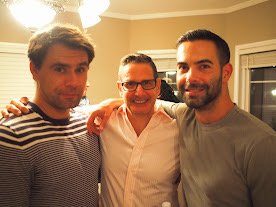
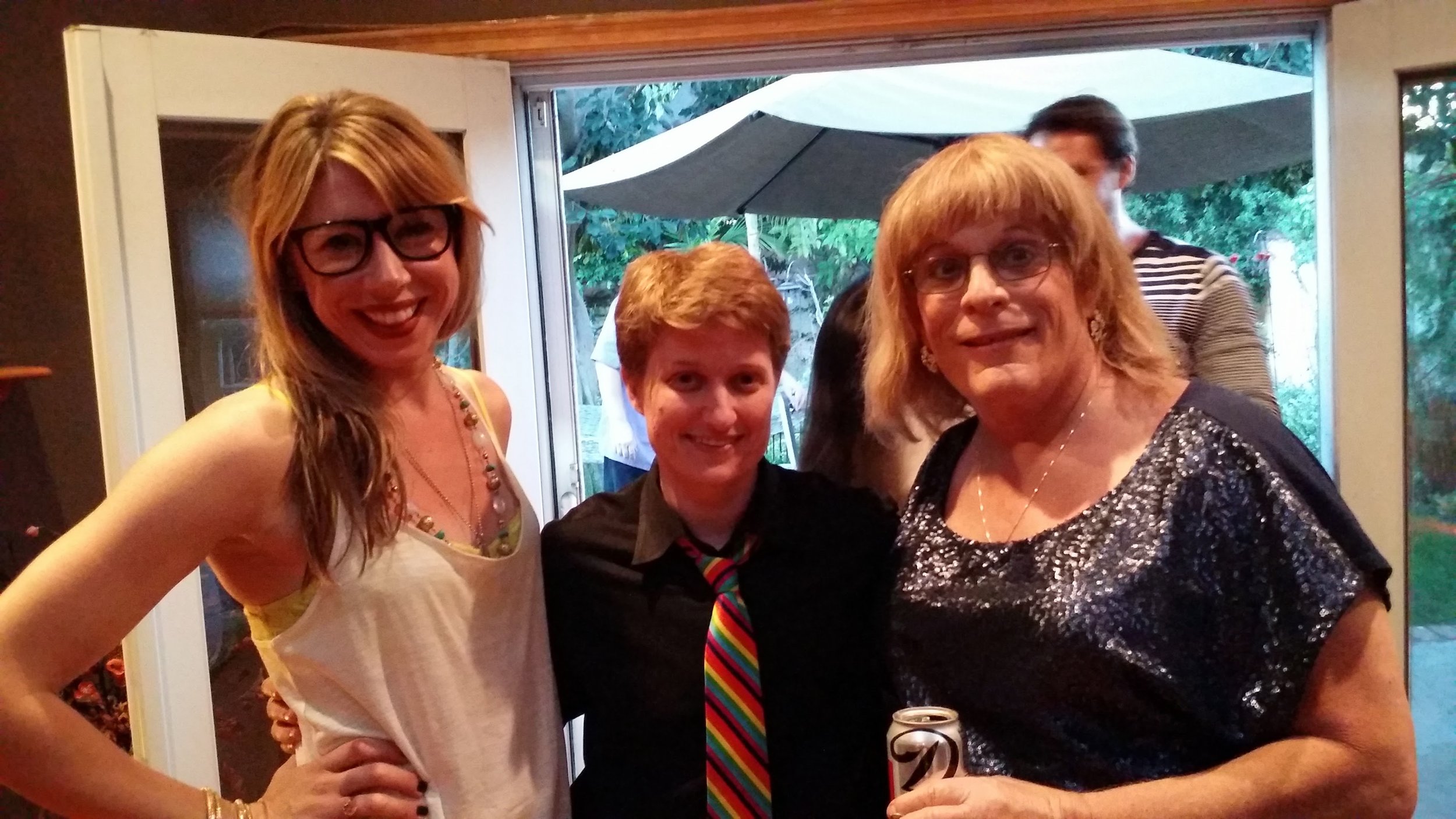
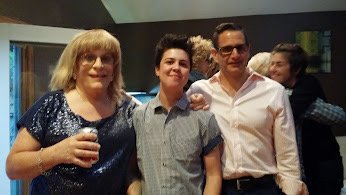
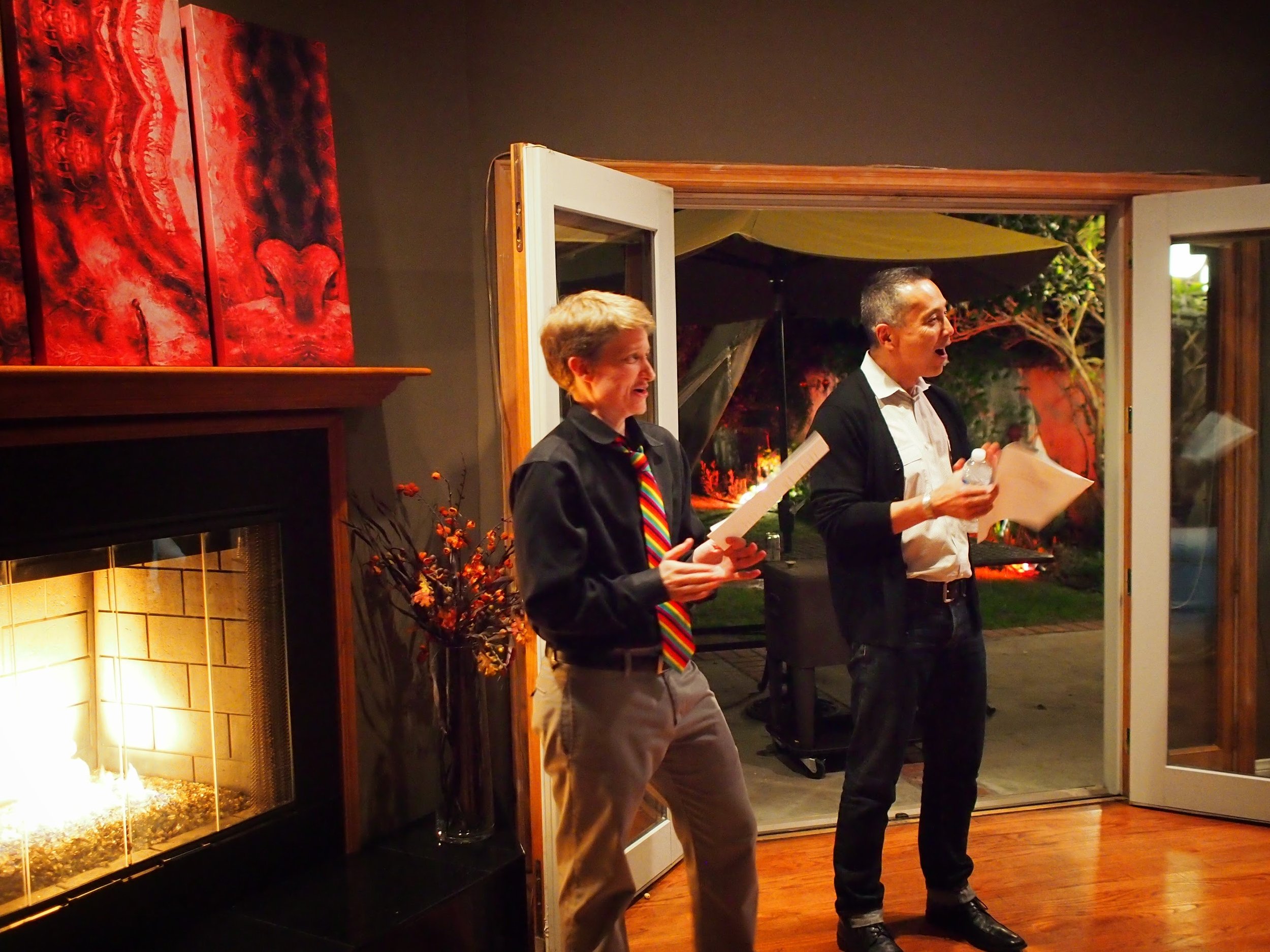

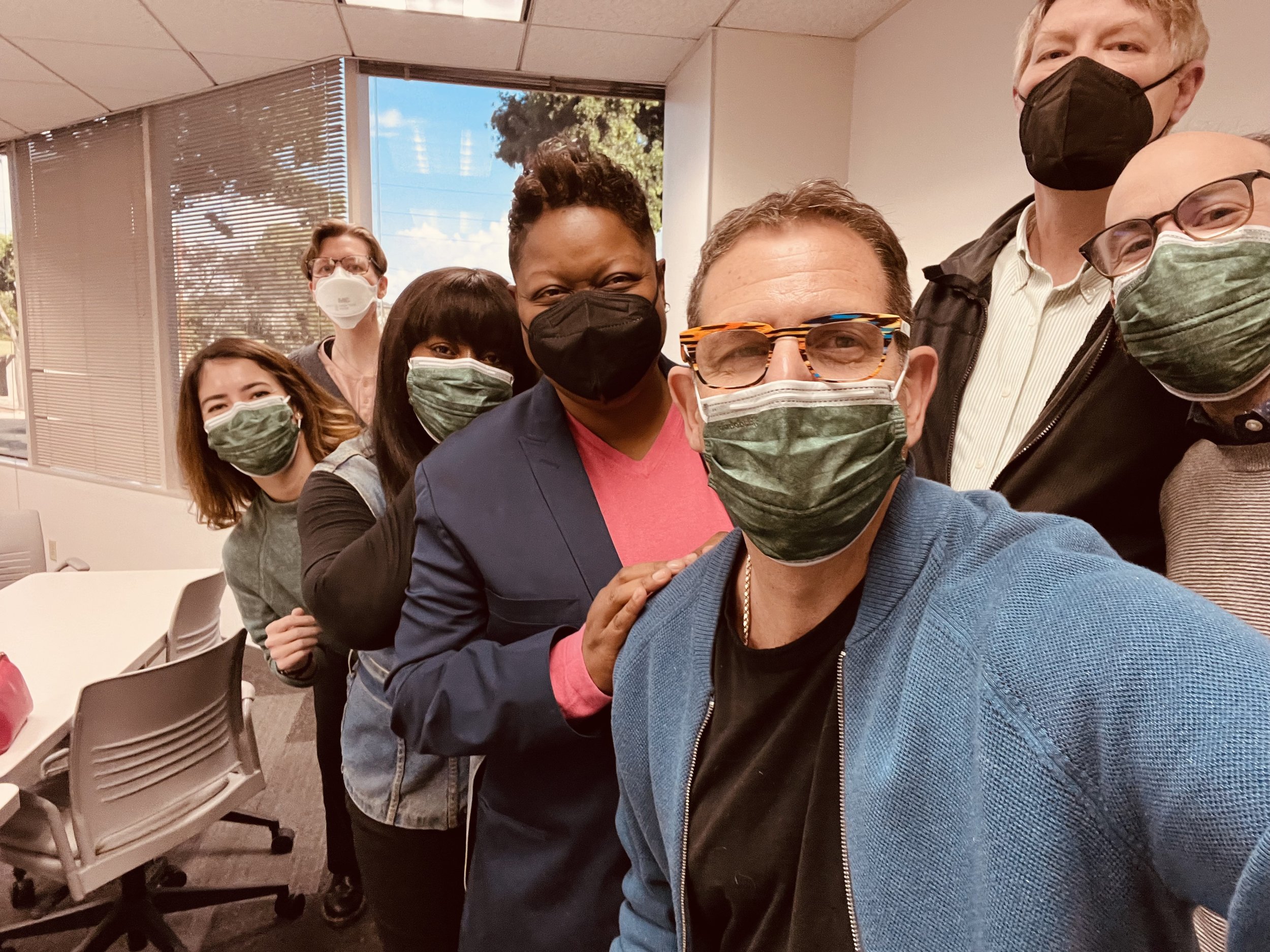
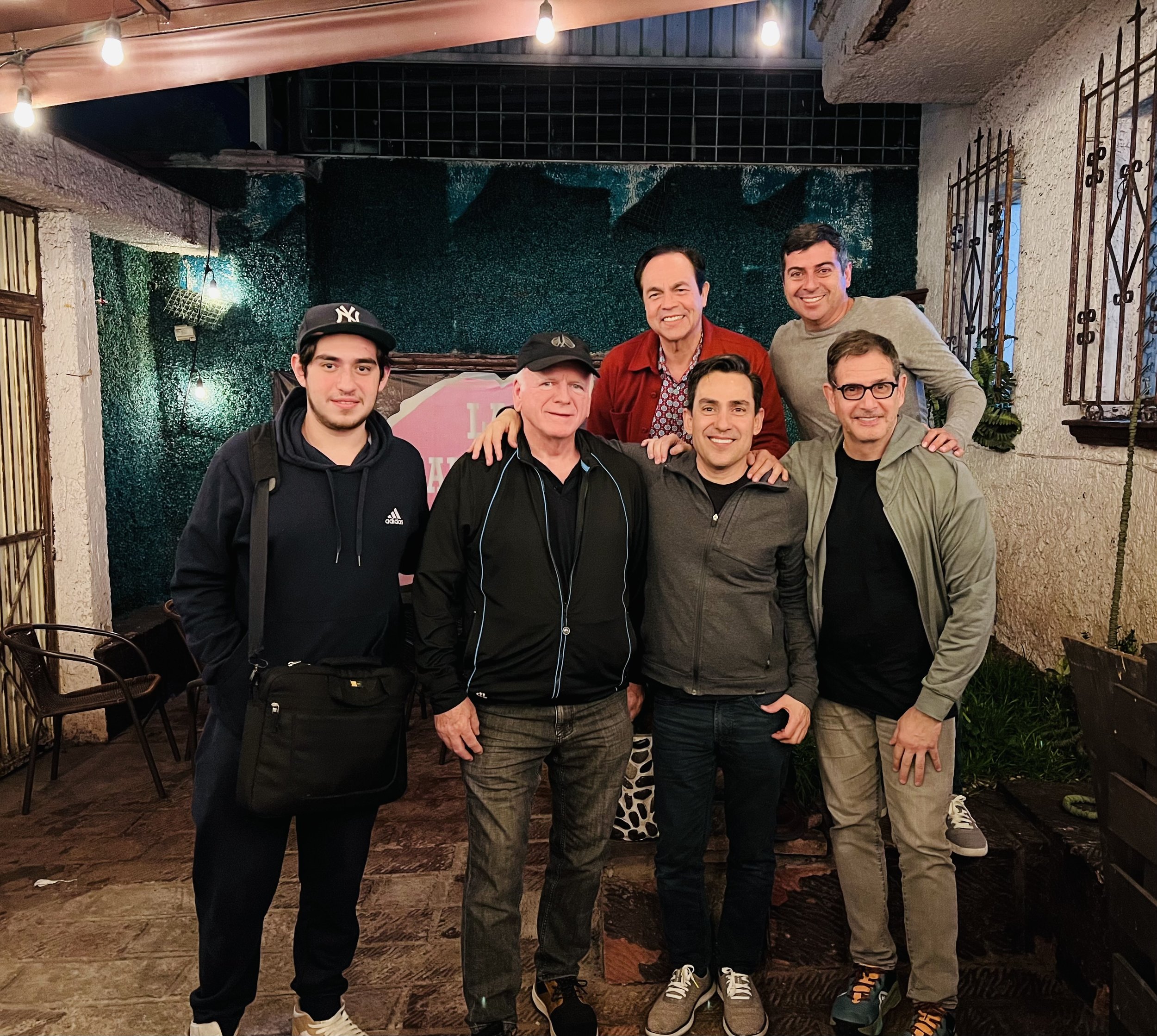
The best part about retirement is my return to my love of writing and literature¾two activities which characterized the first half of my life before my activism took me into psychology. There is so much to say, and I’d like to now be both a theoretician and an artist.
So, here is my gay science, a simple relativity formula: Psychological Theories + LGBTQ Discourse + Intersectionality = “Queer Affirmative Therapy.”
I’ll still be teaching at Antioch—but no more faculty meetings. I’m thinking of even telecasting here some of the lectures on the topics about which I am most passionate. So please stay tuned!
Thank you Joy, Lauren, Thomas, Cadyn, Matt, Dean Mark Hower, Erica, (and our new chair, Dr. Tenika Jackson) and the hundreds, if not thousands, of students we have taught in the LGBT Specialization since 2005 and those still to come.
